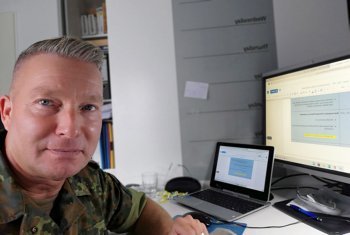Civil-Military Analysis in Complex Environments
Understanding (the operating environment) is not limited to military intelligence on the adversary’s forces, perspective and objectives, but rather requires knowledge about non-military actors and their diverse perspectives, and integration of those viewpoints into NATO planning.”
(BG Lebrun, ACOS J9, SHAPE)
The CCOE conducted a 3-day online workshop titled ‘Civil-Military Analysis in Complex Environments’. The workshop connected military and civilian experts in the fields of CIMIC & CMI with analysts from humanitarian and development organizations, academia and the private sector. In five sessions, the diverse audience shared best practices and perspectives on their analysis concepts, capabilities and techniques. They discussed the meaning and scope of an operating environment and applied consumer perspectives to their analysis processes and products. Weaknesses and strengths of different analysis processes were considered and compared.
 The three days of fruitful discussions resulted in a better understanding of the different actors’ perspectives, their advantageous and challenges in analysis. More importantly, they opened doors to further information exchange and identified opportunities for collaborative analysis. This new network of subject matter experts facilitates the CCOE’s ambition to promote collaborative analysis as well as its development of a new concept in Civil-Military Analysis.
The three days of fruitful discussions resulted in a better understanding of the different actors’ perspectives, their advantageous and challenges in analysis. More importantly, they opened doors to further information exchange and identified opportunities for collaborative analysis. This new network of subject matter experts facilitates the CCOE’s ambition to promote collaborative analysis as well as its development of a new concept in Civil-Military Analysis.
The CCOE’s efforts concerning Civil-Military Analysis are in sync with an ACO Strategic Initiative which declared the development of a Civil-Military Analysis Capability a priority for NATO’s CIMIC & CMI. Consequently, in early 2020 the CCOE has initiated an Analysis and Assessment (A&A) working group to develop a new concept to analyze the operating environment, focusing on non-military actors and their perspectives.
In the upcoming months, the A&A working group will host further expert-talks to discuss the most important findings of the workshop in-depth and to investigate the opportunities in collaborative analysis. Based on the results, the working group will draft a first concept and starts investigating training requirements and opportunities concerning Analysis and Assessment.
Author: Leonie Stapelfeldt

